All HE news has been dwarfed by the election outcome. At the time of writing we have a minority government in place and it looks as if there will be very uncertain times ahead. The obvious HE angle has been the reports of increased turnout, in particular amongst the young – and the power of the student vote to change outcomes in university towns. Again, at the time of writing, there has not been clear confirmation of the actual role of the younger vote – more information will be forthcoming in the next week or so once the analysis is done.
The obvious immediate impact on HE of the result is that, because of the uncertainly, the publication of the TEF results, planned for Wednesday, has been postponed. It is not likely to be postponed for long, though.
Longer term, there are rumours of a possible change of direction towards a softer Brexit and a softer approach to migration. The latter may happen – but possibly only because it will be difficult to pass controversial legislation. Softer Brexit seems unlikely simply because in the end the EU want a hard Brexit – but we will see. The Brexit argument did not help the Lib Dems much – suggesting that the majority is still pro-Brexit. There are also stories of a delay to Brexit – but that also seems unlikely as all the EU member states would need to agree.
Rankings
Universities are carefully considering their messaging relating to rankings position following a complaint to the advertising watchdog. The BBC report the University of Reading will remove their claim to be within the top 1% of the world’s universities after the watchdog stated the figure could not be substantiated and could be misleading. The difficulty over making claims arises because no ranking assesses every HEI and each ranking measures a different set of criteria. While the HE sector has long debated the usefulness and bias within rankings, and the impact on student institution choice, clouding the claims a university can make is likely to weaken international communications particularly within status focussed cultures. This potentially could exacerbate the current recruitment instability following the Brexit vote and the inhospitable atmosphere created by the immigration targets.
Widening Participation
New research from Claire Callender continues the debate on whether fees deter the poorest students from attending university. The researcher is keen to point out that prospective students fully understand the different nature of student loans and critiques the current policy focus on school achievement as the mechanism to boost access. Callender’s research found that debt aversion has increased among working-class and middle-class students and is a much stronger deterrent now than in the past. Recent increases in disadvantaged applications are attributed to few alternative options to the uncapped number of university places. Callender states: “Many potential students, particularly the poorest, do not feel that student loans are affordable, or a safety net against an uncertain future, despite understanding how the loans work. For these young people the idea that student loans are not really debt does not ring true…The current government’s argument that student loans widen participation is misleading. Our study shows that a student funding system reliant on fees and loans, regardless of whether debt is repaid or written off by the state, discriminates against those it claims to help.” These claims have been critiqued in comments left on the Wonkhe article by highlighting that students intention and opinion may not actually translate into university avoidant behaviour.
Action on Access have published Supporting Student Success: What Works Programme. This is the final report following the 6-year retention and success programme, click here for the ‘summary’ (30 pages) and here for the full report. It emphasises the need for a whole-institution approach embedded in the local context and a mixed methodology evaluation to develop an ongoing evidence-informed programme of tailored interventions.
2017 Student Experience Survey
Before the election, this week’s big policy news has been the release of the HEPI-HEA 2017 student experience survey findings. Wonkhe succinctly summarise the findings here, and there has been press coverage on the findings from the BBC, Guardian, and The Times.
In brief, teaching is perceived more positively, learning gain has been reported positively (although Wonkhe disagree), and student wellbeing remains a concern. Most interesting is the consideration of the results dissected by student residency, ethnicity and sexual orientation. Students who live at home and commute score lower on satisfaction and wellbeing than students that relocate and live in. There are also clear ethnicity differences, in particular Asian and Chinese students rate teaching staff and value for money of their degree lower; and non-straight students score lower across the board on wellbeing. As Wonkhe suggest the interplay between race, commuting, attainment, wellbeing, learning gain, part time employment, and student support may make for some interesting personalisation interventions within the sector if the data can be sufficiently interpreted.
For more detail on the findings, read on…
Individual student experience differed greatly depending on ethnicity, accommodation (live in or at home) and sexual orientation. These factors had a direct impact on how engaged students are with their studies and on their overall quality of life. It raises the tricky personalisation agenda for universities and the report encourages deeper thinking about how to respond to the individual characteristics of each student.
The Survey confirms higher education transforms lives but also that it does not currently help all students equally. In particular work is needed to address the less positive academic experience of minority groups, and to realise the potential benefits from studying alongside non-UK students. The conclusion states: Accusations that curricula, teaching and learning practices and assessment methods unintentionally favour white students have proved controversial. Yet the Survey confirms that all these areas, and more, must be considered if we are to understand fully the different performance of students with different ethnic backgrounds. (Page 54.)
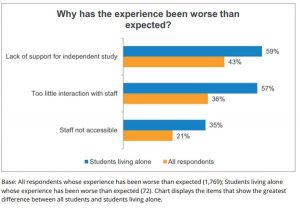
Contact hours: The report suggests student expectation around contact hours may be evolving because of the peak of 10-19 hours compared to 2016 peak of 20-29 hours. The report suggests that beyond this tipping point of contact time student satisfaction is also about using the right teaching methods in the right volume.

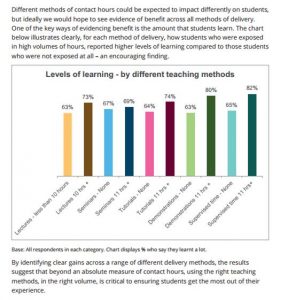
Value of money: Perceptions of value for money are falling. 34% of students think they are receiving poor value (35% think they are receiving good value). Students want universities to provide information on where fees go, taxpayers to cover more of the costs and policymakers to provide stronger arguments for future fee rises. The decline in perception of value is of concern, and highlights how complex this issue is. For the third year running students have complained about the lack of information on how ‘their’ fees are spent. Only 19% of students believe they receive enough information, the report suggests therefore that institutions need deeper engagement and personalisation of approach with students at every stage of their higher education experience to meet their expectations better. There are ethnic differences in perception of value for money too. Among the UK-domiciled students the differences between white and non-white student groups are significant.
Learning gain: Two-thirds (65%) of students in UK higher education say they have learnt ‘a lot’. Evidence that perceptions of teaching quality are rising includes year-on-year increases in students’ perceptions of teaching staff characteristics. Compared to 2016, a higher proportion of students think: course goals are explained clearly (up from 63% to 65%); teaching staff motivate students to do their best work (from 51% to 54%); and staff help students explore their own areas of interest (from 33% to 37%).
Delving into the document there is a focus on how living arrangements affect learning. On average, students who live at home perceive themselves to be learning less, perhaps showing they are not as well integrated as others. Some institutions are now usefully exploring the concept of the ‘sticky campus’ to ensure all students have access to the non-academic aspects of student life. In addition undertaking paid employment for more than a few hours a week can be detrimental to academic work, including – potentially – the class of degree obtained. However, universities can potentially make life easier for students in need of extra income by providing on-campus jobs, acting as caring employers and providing managers who understand the rhythms of student life.
Students that live at home are much less likely to report strong gains in learning and more likely to wish they’d chosen another course or institution – this raises issues of isolation and access to learning support.
The report states the results highlight economic and cultural factors affect a student’s decision to live at home, particularly students within Polar areas 1 and 2 and the Asian community.
Teaching quality: Perception of teaching quality differs by ethnicity. Staff characteristics are consistently rated lower among UK-domiciled Asian and Chinese students, these are also the cohorts with the lower scores for learning gain and value for money.
Differences by student ethnicity in perception of teaching staff characteristics
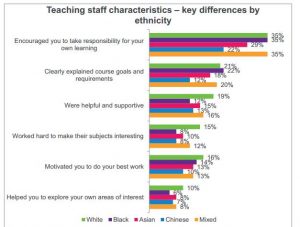
Student wellbeing: Students are less happy and more anxious than non-students. The Survey confirms student wellbeing is lower than for the rest of the population. Only one-in-five students (19%) report low anxiety, compared to twice as many (41%) people in the population as a whole. Students who say they have learnt ‘a lot’ have higher levels of wellbeing, indicating how more positive results could be achieved in future.
Sexual orientation & wellbeing: Students who identify as straight do better on each of the four wellbeing measures than other students, the report suggests HEIs have further to go in providing a fully supportive environment for people of all sexual orientations.
University spending: Students were asked their most and least preferred ways to save money – wellbeing and support services emerged as a priority for retaining spending.
Global diversity: A new question asked UK-domiciled students about studying alongside students from outside the UK, 36% responded positively, 32% were unaware of any benefits and the remainder were neutral. The report suggests more needs to be done to explain the benefits of learning within a diverse environment to students.
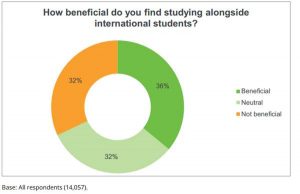
Teaching Excellence Framework: The survey reports the vast majority of students (76%) are firmly opposed to TEF-linked fee rises (or perhaps just opposed to fee rises).
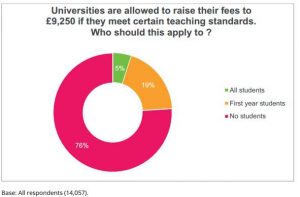
Responses to the survey findings
Julia Goodfellow, UUK responded: “students understandably have higher expectations of their universities following the introduction of the current fee and income-contingent loan system in England. Universities have increased investment in teaching and learning and are continuing to respond to student feedback. Students are now reporting record levels of satisfaction with their courses across all the UK’s universities, and that is down to the hard work and commitment of university staff. Universities are also publishing more information about what universities spend their money on, making sure it is accessible and meaningful to students and parents.”
At the HEPI conference Jon Wakeford (UPP) spoke about how a focus on the role of transition to the university environment could help.
Coming soon…
On Tuesday 13 June the full LEO (longitudinal education outcomes) data will be released showing the connection between university graduate earnings and employment. It is expected to be released on this site – unless this is also postponed because of the election result.
Jane Forster Sarah Carter
VC’s Policy Adviser Policy & Public Affairs Officer
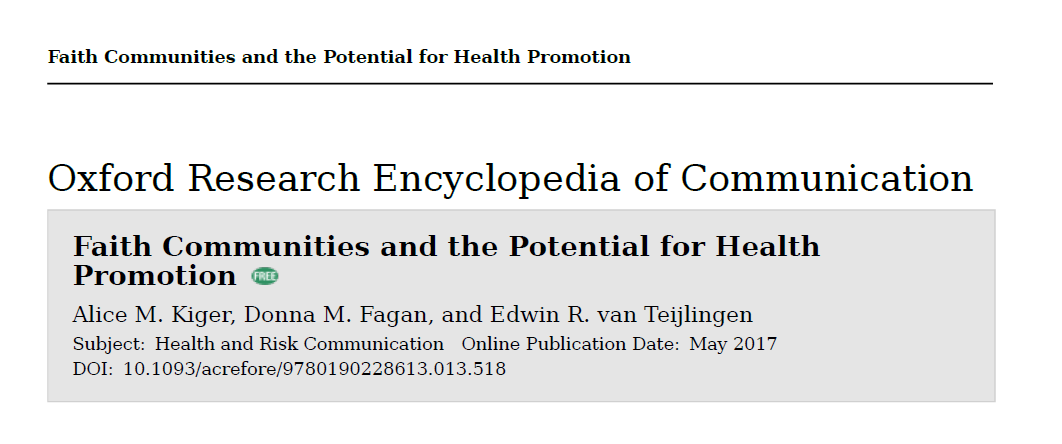
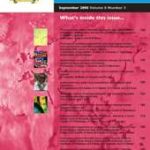 On top of this encyclopaedia entry, the Open Access journal African Health Sciences [Impact Factor 0.66] accepted our paper in the same field a few weeks ago. This paper ‘Influence of faith-based organisations on HIV prevention strategies in Africa: a systematic review’ formed part of the first author’s M.Sc. in Public Health [2]. Our previous papers reported on a study of faith-based and faith-placed health promotion in and around Dundee [3-4].
On top of this encyclopaedia entry, the Open Access journal African Health Sciences [Impact Factor 0.66] accepted our paper in the same field a few weeks ago. This paper ‘Influence of faith-based organisations on HIV prevention strategies in Africa: a systematic review’ formed part of the first author’s M.Sc. in Public Health [2]. Our previous papers reported on a study of faith-based and faith-placed health promotion in and around Dundee [3-4].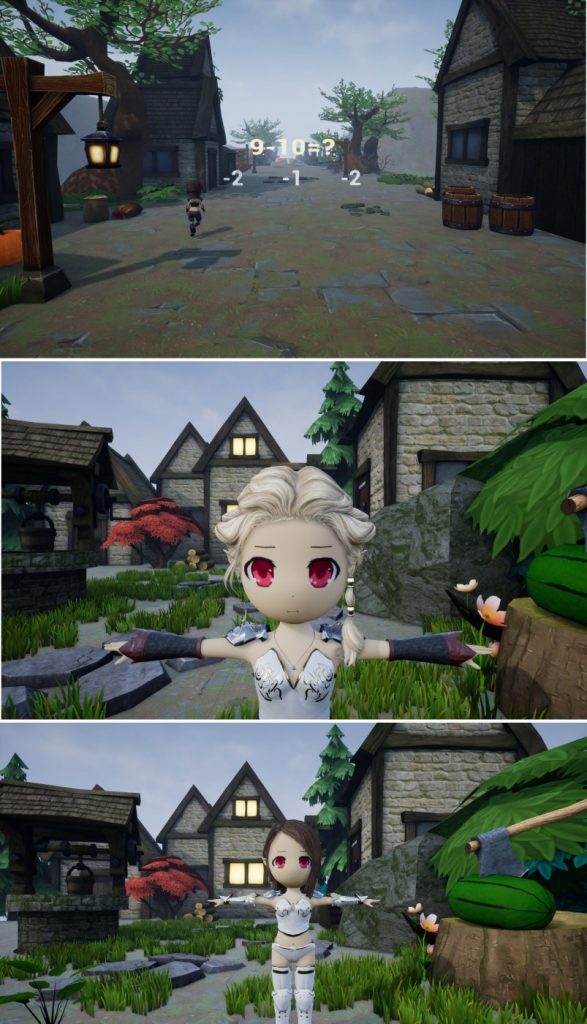 2 Magic Land is a farming game that gives you chances to sell your magic potions brewed from your own fruits and vegetables to the wizard of oz. You must be clever, resourceful, and most of all BE PATIENT.
2 Magic Land is a farming game that gives you chances to sell your magic potions brewed from your own fruits and vegetables to the wizard of oz. You must be clever, resourceful, and most of all BE PATIENT.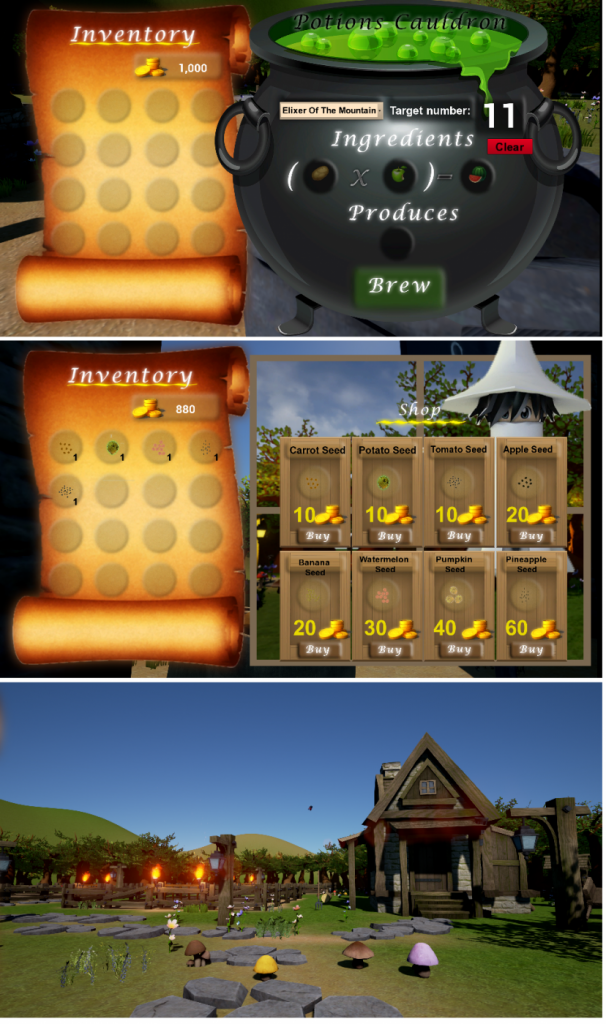

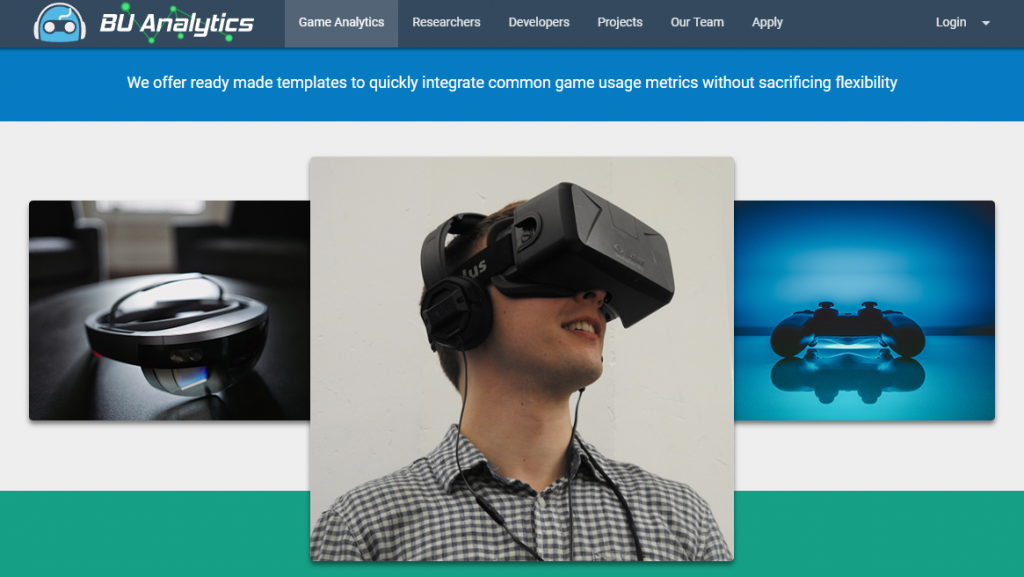 BUAP offers researchers and developers an intuitive, flexible and powerful framework to evaluate various design and research aspects of their projects using a data-driven approach. BUAP is applicable to a wider range of application:
BUAP offers researchers and developers an intuitive, flexible and powerful framework to evaluate various design and research aspects of their projects using a data-driven approach. BUAP is applicable to a wider range of application: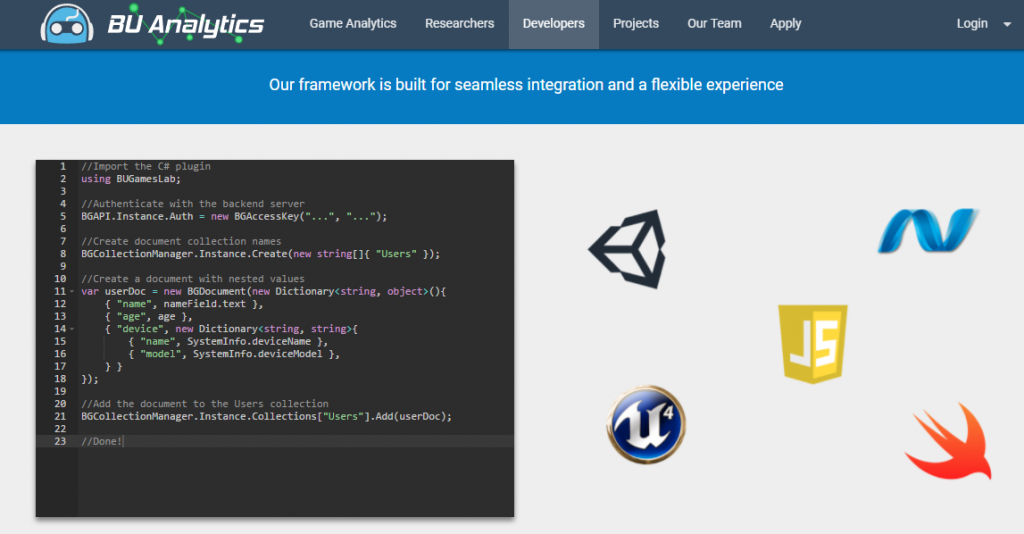
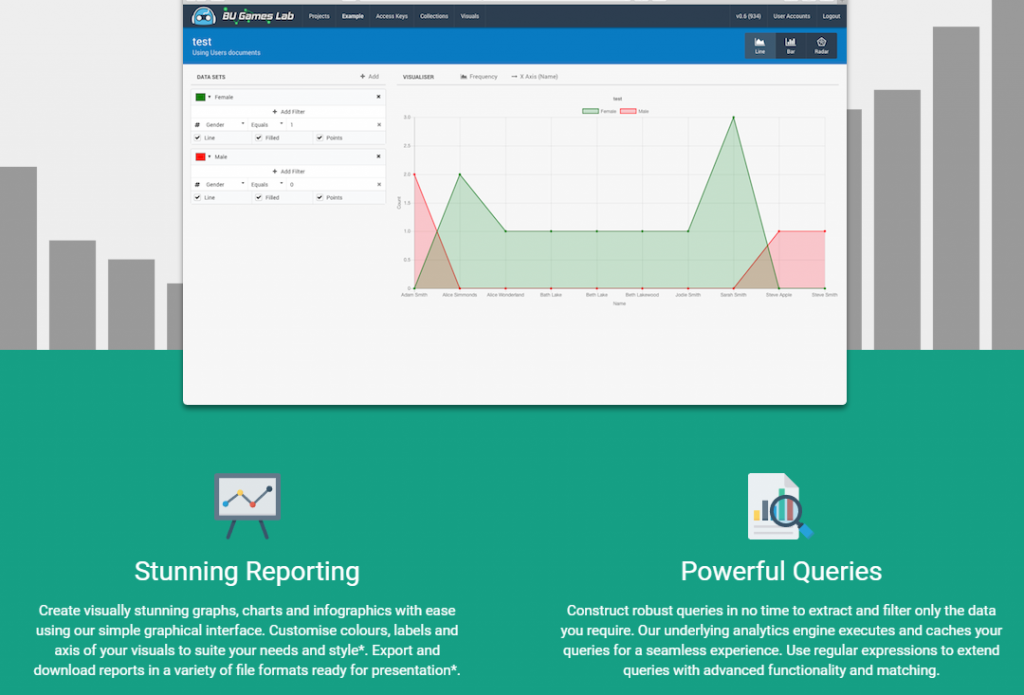

 Academics and filmmakers are being encouraged to enter their work into the
Academics and filmmakers are being encouraged to enter their work into the 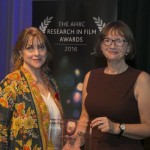 Last year, Bournemouth University’s Sue Sudbury won the Innovation Award – new approaches to storytelling in film. You can watch the film
Last year, Bournemouth University’s Sue Sudbury won the Innovation Award – new approaches to storytelling in film. You can watch the film  We would encourage our BU academics to participate in this upcoming Vitae event and pick up useful tips and information. A
We would encourage our BU academics to participate in this upcoming Vitae event and pick up useful tips and information. A
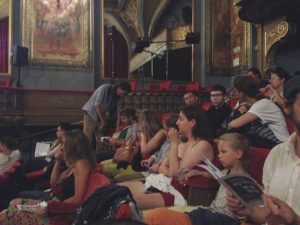


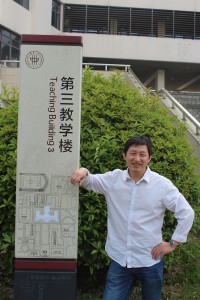
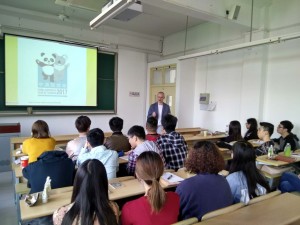
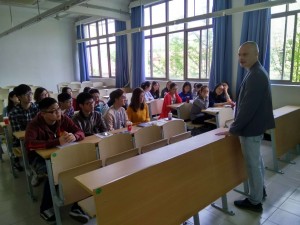
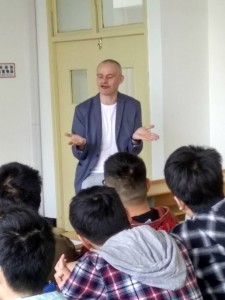
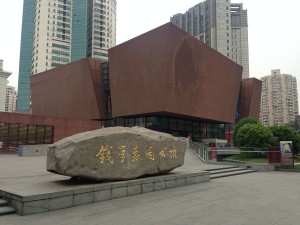
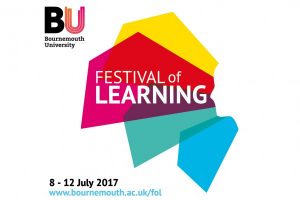 As part of the Bournemouth University Festival of Learning event National Centre for Post-Qualifying Social is running an event on ‘How you can stay safe and protect yourself against financial scams’.
As part of the Bournemouth University Festival of Learning event National Centre for Post-Qualifying Social is running an event on ‘How you can stay safe and protect yourself against financial scams’.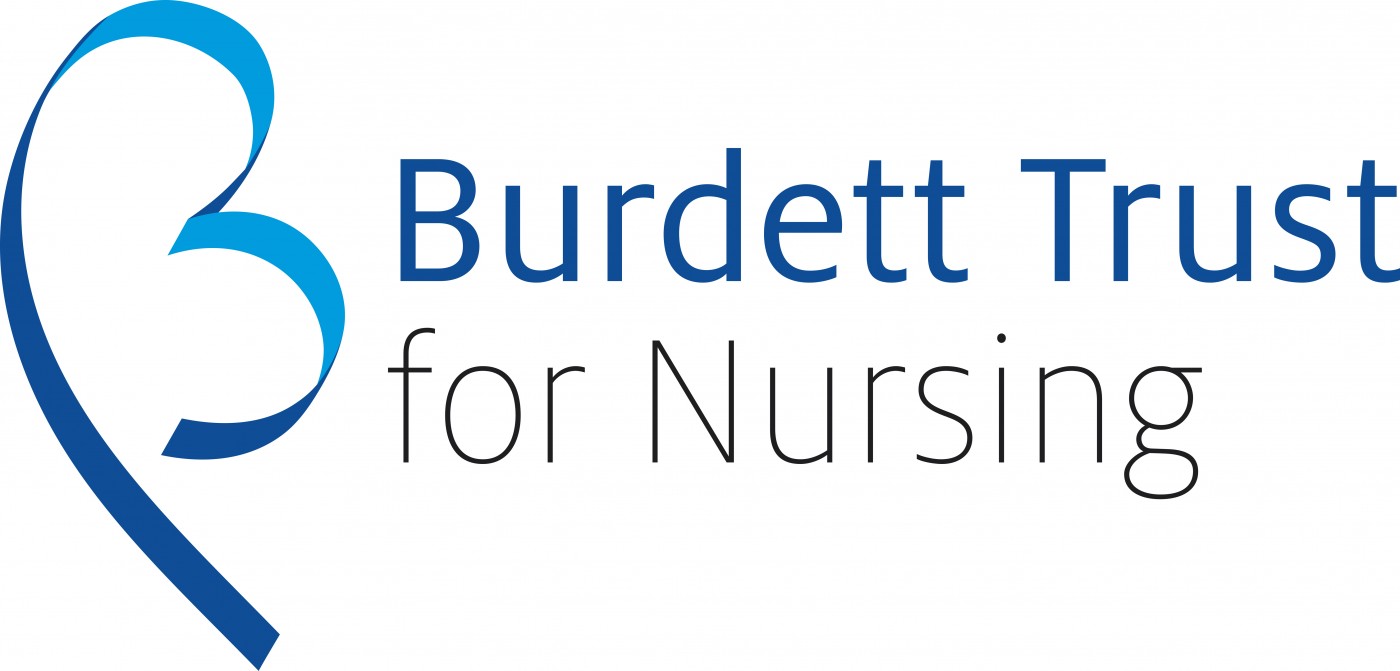

















 UK Turing Scheme: My student mobility programme in Nepal
UK Turing Scheme: My student mobility programme in Nepal Bournemouth University psychologists publish new book
Bournemouth University psychologists publish new book Connecting Research with Practice: FoodMAPP Secondment in Austria and France
Connecting Research with Practice: FoodMAPP Secondment in Austria and France Health promotion paper read 8,000 times
Health promotion paper read 8,000 times The Beautiful Work Challenge: On Birth
The Beautiful Work Challenge: On Birth MSCA Postdoctoral Fellowships 2025 Call
MSCA Postdoctoral Fellowships 2025 Call ERC Advanced Grant 2025 Webinar
ERC Advanced Grant 2025 Webinar Horizon Europe Work Programme 2025 Published
Horizon Europe Work Programme 2025 Published Horizon Europe 2025 Work Programme pre-Published
Horizon Europe 2025 Work Programme pre-Published Update on UKRO services
Update on UKRO services European research project exploring use of ‘virtual twins’ to better manage metabolic associated fatty liver disease
European research project exploring use of ‘virtual twins’ to better manage metabolic associated fatty liver disease